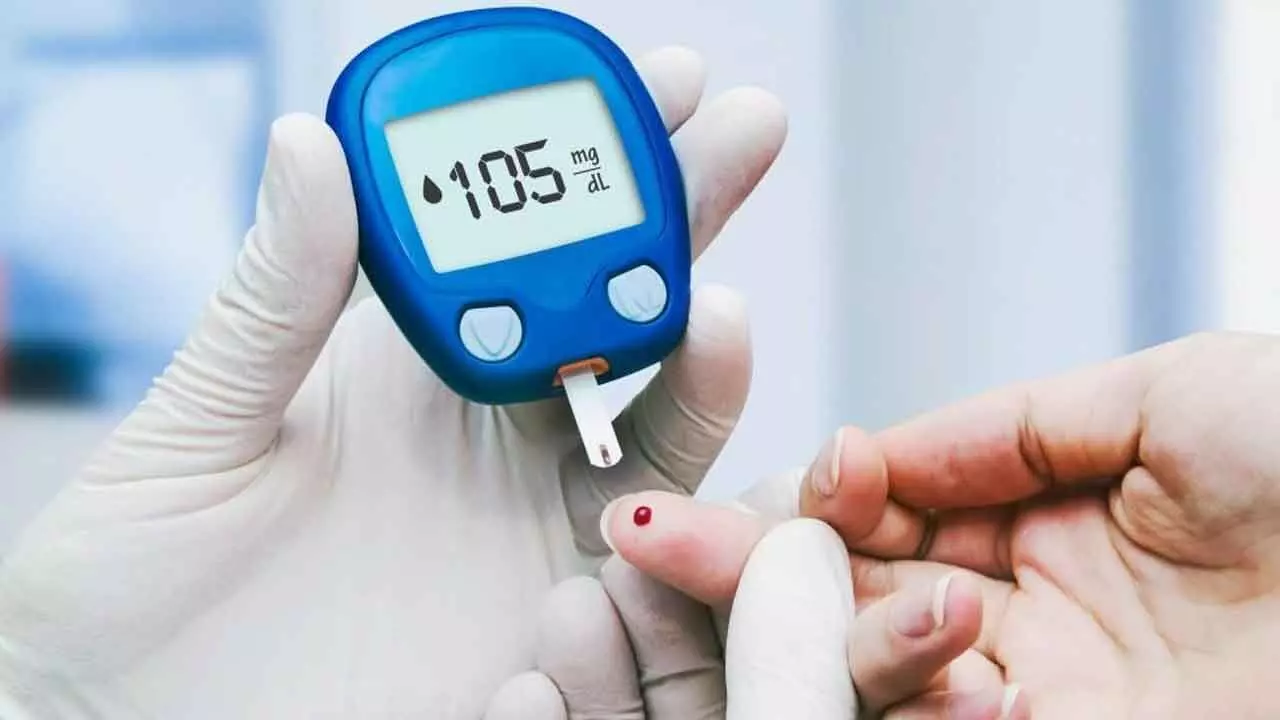Preventing Heat Exhaustion In Diabetics Through Effective Hydration Solutions
As diabetes rates surge globally and particularly in India, where millions face increased risk, understanding the link between diabetes and heat-related illnesses has never been more urgent
Preventing Heat Exhaustion In Diabetics Through Effective Hydration Solutions

For those with diabetes, managing hydration isn't just about drinking water; it's about ensuring electrolyte balance to prevent dehydration and heat exhaustion, which can complicate blood glucose management. Ready-to-drink electrolyte-rich solutions are emerging as a practical option to address these unique needs, especially during high temperatures and periods of physical activity
Diabetes mellitus is a global health crisis affecting millions worldwide. Managing its symptoms is crucial, and an often-overlooked aspect is the increased risk of heat exhaustion. Understanding the relationship between diabetes and heat-related complications is essential, as is emphasizing proper hydration strategies tailored specifically for those with diabetes.
India Becoming a Diabetes Capital
The prevalence of diabetes is alarming. According to the International Diabetes Federation (2021), 537 million adults aged 20 to 79 live with diabetes globally, equating to 1 in 10 individuals. This number is projected to rise to 643 million by 2030 and 783 million by 2045. "Low- to middle-income countries bear a disproportionate burden, accounting for three out of four adults with diabetes," says Dr B Ravinder Reddy, Senior Gastrointestinal & General Surgeon at CARE Hospital - The Institute of Medical Sciences, Banjara Hills, Hyderabad, Telangana.
India is no exception. A 2023 study published in The Lancet revealed that approximately 136 million Indians may be living with pre-diabetes. These figures underscore the urgent need to thoroughly understand certain key issues and vulnerabilities within the diabetes population, followed by implementing effective management strategies to address them.
Link Between Heat-Related Illnesses and Diabetes
Dr B Ravinder Reddy explains that diabetics are uniquely vulnerable to dehydration and overheating. "High blood glucose levels lead to osmotic diuresis—a condition where increased urine production causes excessive fluid loss. This fluid loss can result in electrolyte imbalances, worsening dehydration."
Furthermore, damage to blood vessels and nerves in diabetics can impair sweat gland function. This hinders the body's ability to cool itself efficiently, increasing the risk of heat exhaustion and heat stroke—medical emergencies that require immediate attention. "Hormonal imbalances also play a role," Dr Reddy adds. "In healthy individuals, hormones like arginine vasopressin (AVP) regulate thirst and maintain fluid-electrolyte balance. In diabetics, the release and function of these hormones can be affected, disturbing this balance."
Factors such as inadequate fluid intake, strenuous activity, high temperatures, alcohol consumption, and acute illnesses like diarrhea or fever further elevate the risk of dehydration and electrolyte disturbances in persons with diabetes. "Hot weather can lead to serious health issues for diabetics, making them more sensitive to high temperatures and humidity. This makes adequate hydration especially important in tropical countries like India," he advises. Maintaining control of blood glucose levels may be more challenging, which in turn raises the risk of heat exhaustion.
The Importance of Proper Hydration
"It is generally recommended that people aim to drink 6 to 8 cups or glasses of fluid a day," Dr Reddy says, "but for diabetics, hydration needs are more complex." Plain water may not suffice for persons with diabetes experiencing dehydration due to non-diarrheal conditions. Electrolyte-rich fluids are essential to replenish vital minerals like potassium, sodium, chloride, and magnesium, which are crucial for normal bodily functions. These electrolytes help maintain nerve and muscle function and balance the body's water content.
"Symptoms of heat-related conditions in diabetics include dizziness, excessive sweating, muscle cramps, fainting, headaches, rapid heartbeat, and nausea," Dr. Reddy warns. Addressing these symptoms promptly with appropriate hydration can prevent progression to more severe complications.
Ready-to-Drink Formulations: A Practical Solution
While water is vital, Dr. Reddy points out that it may not provide adequate electrolytes and energy. "Ready-to-drink formulations containing fluids, electrolytes, and energy (FEE) offer a practical solution," he says. These formulations provide known quantities of electrolytes and energy ingredients, simplifying hydration strategies for both patients and healthcare providers. It is advisable to stay hydrated by drinking adequate water or caffeine-free beverages with low sugar content and sufficient electrolytes.
A survey among Indian physicians highlighted that hydration assessment is a major challenge, with many physicians spending inadequate time providing hydration advice to diabetic patients. Incorporating ready-to-drink FEE formulations can simplify hydration strategies, especially during hot weather, after strenuous exercise, or when managing acute non-diarrheal illnesses that cause fluid loss. By ensuring adequate intake of electrolytes and energy, ready-to-drink solutions help support hydration requirements in persons with diabetes.
The Ultimate Hydration Strategy
The American Diabetes Association advises diabetics to avoid sugar-sweetened and non-nutritive beverages, as they can negatively affect blood glucose levels. "Instead, consuming fluids that hydrate and maintain electrolyte balance is recommended," Dr. Reddy suggests. While traditional homemade remedies like Nimbu Paani (lemon water) or tender coconut water are popular for hydration, they may vary significantly in electrolyte content, particularly sodium and glucose, and might have an inappropriate glucose-to-sodium ratio. Additionally, errors in preparation can lead to excessive carbohydrates or insufficient electrolytes, hindering effective rehydration.
"Electrolyte-rich water, specially formulated rehydration solutions, or ready-to-drink FEE formulations with low sugar can restore the body's electrolyte levels without introducing excessive sugars that could spike blood glucose," advises Dr. Reddy. For diabetics, hydration isn't just about the quantity of fluids consumed but also about the quality. Electrolyte replacement is a vital component of hydration for persons with diabetes and heat exhaustion, particularly in hot climates or during periods of increased physical activity.
As diabetes continues to affect a growing portion of the global population, recognizing and addressing the unique challenges faced by diabetics is essential. Dr. Reddy emphasizes, "Overheating and dehydration due to non-diarrheal conditions pose significant risks, but with proper management—including the intake of electrolyte-rich fluids and ready-to-drink formulations—these risks can be mitigated." By prioritizing quality hydration and being mindful of factors that contribute to fluid loss, diabetics can reduce the likelihood of heat-related complications.

